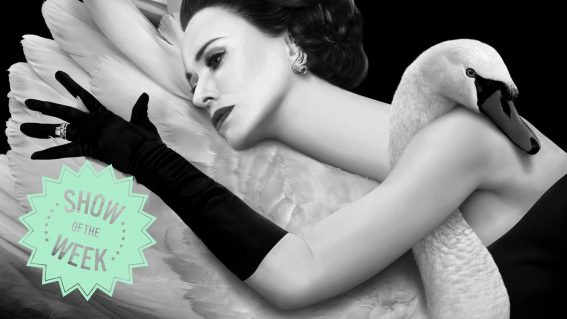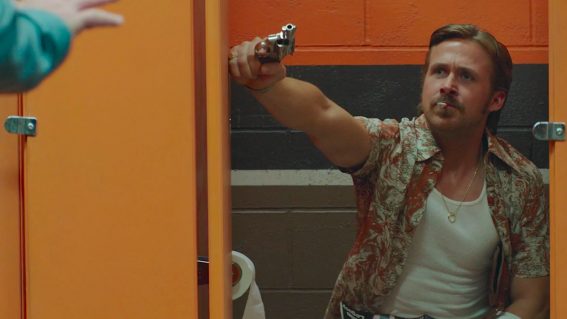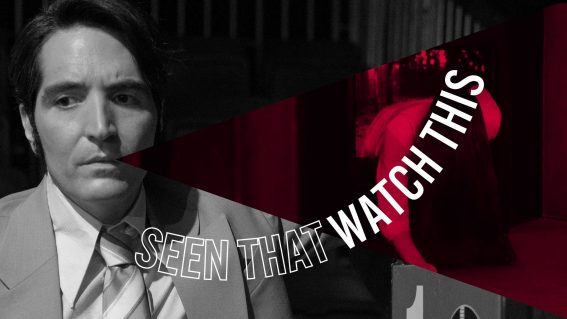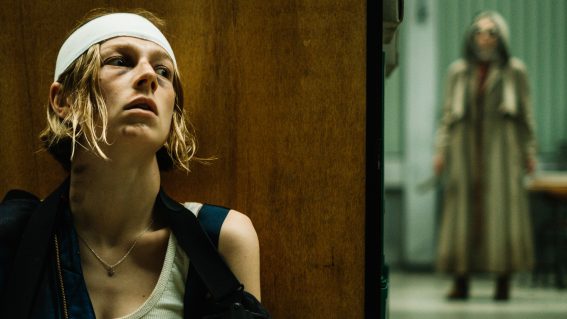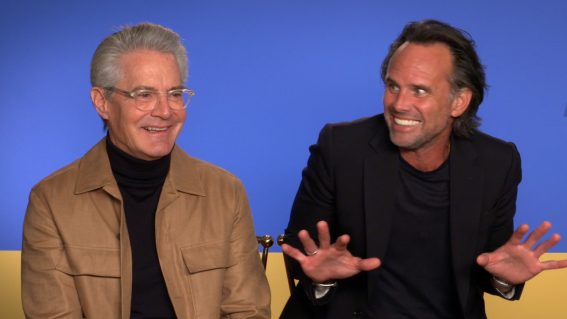“Upon St Crispin’s Day!!”
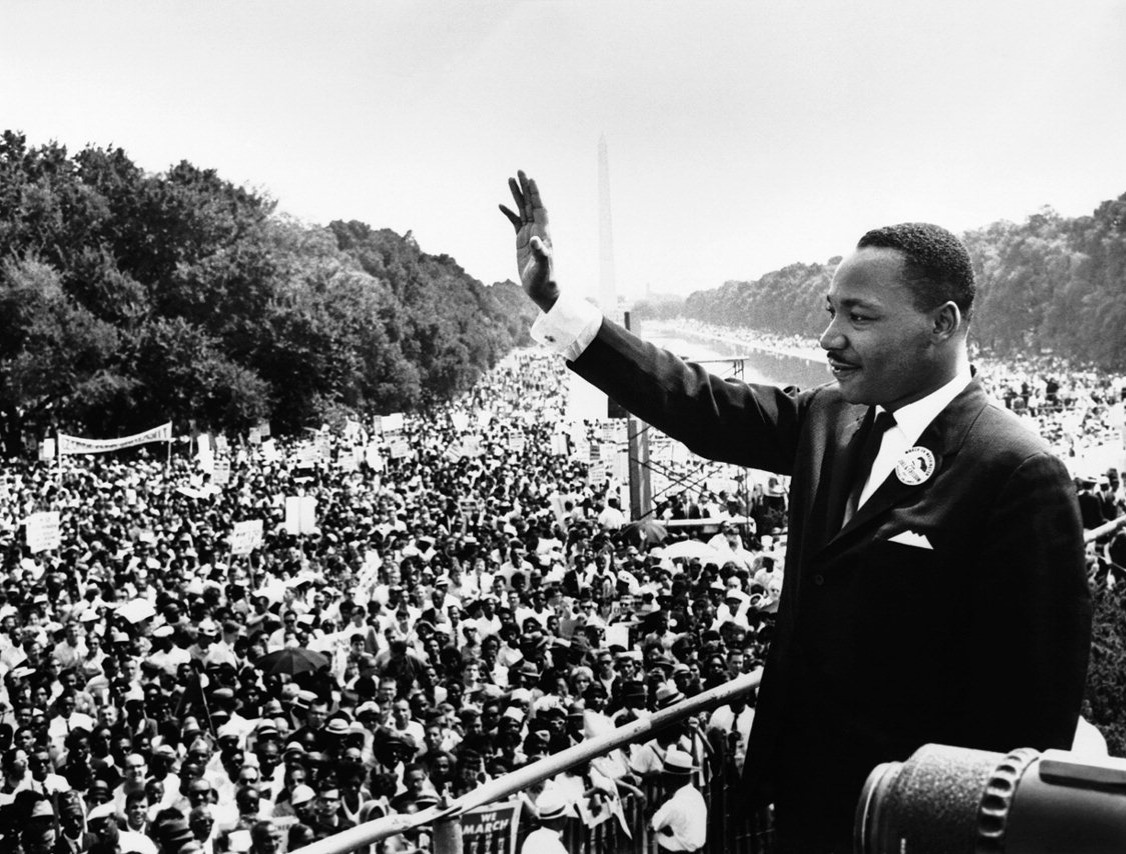

Martin Luther King Jr delivers his "I Have A Dream" address in Washington D.C.
In the course of human existence and that experiential medium that we call “life”, there are few things that people could argue ennoble our species more than the power of speech…or more precisely the power to give damn great speeches. History is seemingly anchored to orbit around moments when one human being got their wits together, took a deep breath and (reputedly) exhaled words, syntax, grammar and nuance in such a combination of obscene eloquence that the world seemed to stop for a minute and humanity collectively listened. From Cicero to Elizabeth I, Demosthenes to Churchill or Jefferson to JFK, the ability to concisely deliver a well-thought out and evocative speech has not only helped shape history, but also ingrain our culture with the importance of being able to communicate an idea with meaningful context and emotional firepower. Gandhi, Hitler, Twain, Cromwell and Ben Franklin are some of the people who are reknown not only for their deeds, but for their power to hold sway over millions of people through their words.
Speech is also a vital component for a majority percentage of movies and great speeches themselves are tinged with the essence of what makes their real-world counterparts so memorable. But movie speeches are so much more: attenuated to such perfection by the collision of sound and imagery, uplifting music and the tears in the audience’s eyes, to the point where the art-form of the great movie speech stirs within us all something not quite attainable, but yet whole-heartedly true that we take these moments with us forever.
This is what makes epic movie speeches so great and why I want to revisit some (kick up your heels and sit back, this one’s got lots of lovely video clips to enjoy).
Film (and let’s stick with English-language ones for the sake of this English-language blog) has provided us with some fairly epic, soul-stirring, seat-rising speeches in our time. Some speeches move us to tears, others to horror, others to battle and cheering for our heroes. Some speeches cross the border into monologue and dialogue, other dialogues and monologues simply become amazing speeches by sheer execution.
Great speeches are, in many ways, a micro-cosmic examination of all the qualities and elements that make great movie-making: timing, performance, editing, cinematography, music, direction and a cohesive, bite-sized, package of reality disassociation that would evoke an emotional response so overwhelming that for one moment – one blissful moment – you don’t exist. Only the movie exists. The power of great movie speeches can epitomize the power of great films as a whole in this way and, thus, are a snapshot of the greater artform of film taken in one singular moment.

Why do we humans respond to speeches? There are many theories, but on a cognitive level the processes which come together to create the emotional response of a great speech is as complex as the variety of people who do and don’t respond to these things. It’s for this reason that so many people have so many favourite “movie-speech” or “movie-monologue” moments. Ask around and you’ll find, with relative ease, someone who loves and can quote Samuel L. Jackson’s hilarious and dark interrogation from Pulp Fiction, the harrowing Indianapolis shark-attack speech from Spielberg’s Jaws, Nicholson’s famously aped (to the point of nauseum) lines from A Few Good Men, the pop-culture savvy Superman Speech from Kill Bill Vol 2, the Rehabilitation monologue from The Shawshank Redemption, Bogart’s heartbreaking lies at the end of Casablanca, the seminal and grim “I Believe In America” speech in The Godfather or the ripped-from-the-pages-of-Tolkien Rohirrim-charge-speech from The Lord Of The Rings: The Return Of The King.
Great movie speeches are part of the cultural capital that the art of film gifts our society, of that there is no doubt. I could spend hours dissecting why even one of these mere scenes is so great and evokes such powerful imagery and emotion, but I think that’s a bit too clinical and dull for a blog post. Ultimately these collisions of visual and audio poetry work in the context of something that has to be experienced rather than examined, celebrated rather than considered and frankly I can’t think of anything better than spending some time taking you through some of my favourite movie speeches. Of course HEAVY SPOILER warnings apply here: if you haven’t seen these films then watch the clips with severe caution.
Are you ready? Then we’ll begin.
“St Crispin’s Day” – HENRY V
Firstly, yes this isn’t technically a movie-speech but a film adaptation of a literary one. Secondly I do admit that how “great” this adaptation is comes down to how much you can stand the over-acting combo-assault that is Kenneth Brannagh, Brian Blessed and creepy child-Christian Bale. But this speech is perhaps the most relevant place to begin our journey since this is, for all intensive purposes, the prototype by which all cinematic (and other mediums’) “stir up the soldiers, let’s go kick some ass” speeches are sourced from. William Shakespeare wrote some great war-speeches for his plays, but this one is pure bravado and phallus-measuring at its finest.
The scene is set at the Battle Of Agincourt in 1415 as King Henry V (Brannagh) stirs up his troops to take the fight to the French who vastly outnumbered them in a pivotal battle during the Hundred Years War. The speech Henry delivers inspires his men to mark the day (the 25th of October or “St Crispin’s Day”) so that years from now, on every St Crispin’s Day, they could look with pride at their scars and bask in the sheer awesomeness that they fought beside the King and kicked ass and how jealous all their friends (who didn’t turn up to the battle) would be of them. The speech is a great one, a real pot-stirrer that carefully steps around the possibility that they are all going to die. Further, what makes the seemingly cheesy tone of this particular delivery from this particular film work is that the battle that immediately follows is an outright massacre full of blood and guts that contrasts and comments on Henry’s speech in a fairly ironic and dark way.
Versions of this speech have cropped up throughout history in the forms of plays, novels, stories and films; reinterpreted and re-purposed from The Lord Of The Rings to Independence Day to Disney’s Pirates Of The Caribbean (which is Keira Knightley’s horrendous “What Shall We Die For” speech from the third film which I shall spare you from by not linking to it). Suffice it to say, if there’s an inspirational speech in a film (whether it be war, sports, drama or even comedy) chances are it draws from a tradition long setup by Bill Shakespeare’s most-oft repeated and demanded soul-stirrer from Henry V.
“Lost Causes” – MR SMITH GOES TO WASHINGTON
It is, perhaps, of little surprise that one of the earliest cinematic “great speeches” comes from a classic by the undisputed master of earnest American values and eternally optimistic feel-good films: Frank Capra.
In the film, young and extremely naive do-gooder, Boy Scout troop leader and forest-fire-putter-outer Jefferson Smith (Jimmy Stewart) is elected to the United States Senate by corrupt officials who intend to use his simple-minded patriotism to further their own personal agendas. When that corruption is exposed, Jefferson is framed and painted as a villain and his enemies attempt to use the chaos to pass a land-sale bill which will line their own pockets.
Jefferson, realizing what has happened, tries to stop the bill by launching into a filibuster where he speaks, non-stop, for almost 48 hours in order to hold up Senatorial procedure. Eventually the corrupt senators attempt to destroy his will by bringing in letters from duped citizens of his hometown demanding his resignation. What transpires next is Jefferson Smith’s deep dig into his own personal store of unwavering faith in virtue which ultimately breaks one of the more guilt-ridden senators down to admitting the truth about everything.
Capra was always criticized for his so-called “schmaltzy” cinema which heightened the power of good intentions and virtue into a tangible entity that caused evil characters to renounce their ways and this scene from Mr Smith Goes To Washington is arguably no different. However, having had the distance of time to look back at this film, the scene connotes a whole new sense of power in our modern 21st Century context and holds itself to be an important lesson despite it’s saccharine beginnings. Love it or hate it, this was one of English cinema’s earliest and most famous “grand speeches”.
“I’m Tired” – THE GREEN MILE
Sometimes the best speeches aren’t really actual speeches rather than dialogue that is lifted to lofty heights by the ideas expressed within that exchange. In the Frank Darabont-directed adaptation of Stephen King’s novella The Green Mile, a simple poignant scene dealing (almost directly) with the themes that underlie the whole film is explored in a haunting and emotional way via the Academy-Award-nominated performance by Michael Clarke Duncan.
In this scene, very late in the film, 1935 prison guard Paul Edgecombe (Tom Hanks) who oversees the death row block (a.k.a. “The Green Mile”) struggles to come to terms with the fact that he’s about to execute an innocent man: John Koffey (Michael Clarke Duncan). Koffey is a seven foot tall gentle giant and mental simpleton who, complicating matters further, has a supernatural ability to feel the pain and joy of others, heal diseases and resurrect the recently dead.
Koffey earns the love and respect of the guards, cures the warden’s wife of a fatal cancer and makes life better for all who cross his path, but he is condemned to the electric chair for the rape and murder of two young girls which he did not commit. Edgecombe, overcome with guilt for he is about to do, comes to Koffey for advice on what he should do…Koffey responds by telling him how hard it is to wander the earth with his extraordinary powers, but without the mental faculty or opportunity to bring any happiness into his own life.
“Back And To The Left” – JFK
Sometimes there are monologues, sometimes there are speeches…and sometimes there are just entire sections of a film that becomes ingrained in popular culture. Oliver Stone’s conspiracy-theory biopic JFK which deals with the first investigation of the assassination of President John F. Kennedy. The film’s entire final act is an astonishing 25-minute monologue delivered by Kevin Costner portraying Louisiana District Attorney Jim Garrison who has brought charges against a prominent New Orleans businessmen for his part in the supposed government-sanctioned conspiracy to kill the President of the United States of America.
In this phenomenal court-room scene, Garrison outlines the entire operation from start to finish and includes several jaw-dropping moments of cinema including the famous (and much parodied) “The Magic Bullet” sequence, his case for the innocence of Lee Harvey Oswald and his tear-jerking and hoarse (genuinely from the exertion of delivering the lengthy dialogue) closing remarks. However the one small section of this epic speech that stands out for me is the actual murder of the president where Garrison outlines exactly how the shooting took place, expertly inter-cut with beautifully created re-enactment footage, actual home-movies from the incident and a chilling one and three-quarter minute final sequence where Costner’s speech is directly cut to authentic, genuine, real footage of an actual person (President John F. Kennedy) being murdered on-camera.
If you’ve got a weak stomach and have never seen the famous ‘Zapruder film’ of the assassination then you may not want to click this link. But those of us who have seen this will never forget it as long as we shall live.
“Little Ducks” – CRIMSON TIDE
Inspirational and rallying cries to war are usually given by the heroes of cinema, but in Tony Scott’s vastly under-appreciated submarine action-thriller Crimson Tide, the seemingly cliche St-Crispin’s-Day-derivative-speech is delivered by the film’s antagonist as a moment of dark irony and commentary on the nature of fanaticism, blind patriotism and the glorification of war.
The speech is delivered by a megalomaniac, but brilliant submarine captain Frank Ramsey (Gene Hackman) who is devoted to serving his country and following orders blindly. A crisis has occurred where Russian rebels have gained access to the launch codes of Soviet nuclear missiles and have threatened to use them on the United States. Ramsey and his crew are ordered to travel to coast of Asia and engage in a full thermonuclear assault on Russia should the rebels make suggestion that they’re preparing for war.
This becomes complicated when he hires a new second-in-command XO Ron Hunter (Denzel Washington) who is a new generation of military officer trained in philosophy, ethics and the importance of finding a peaceful resolution to conflict. When seemingly contradicting orders come through, later in the film, commanding a launch of nuclear missiles on Russia, mutiny strikes as Hunter clashes with Ramsey on the validity of the orders and whether following commands blindly will ever lead to an end of violence.
In this early scene however, Hunter observes (in almost quaint amusement) the way that Ramsay stirs up a fanatical patriotism in his men (his ‘Little Ducks’) through flag-waving platitudes that’s boldly intercut with beautiful shots of a pre-launch submarine and young Hans Zimmer’s industry-changing musical score. In a moment of contextual complexity, Crimson Tide offers a scene that lands the stirring power of the St Crispin’s Day speech, but tinged with a dark uneasiness that makes you question what it is you’re watching, especially when a stirring “to arms” gesture is made so early in a film like this one. Brilliant.
“So Much Beauty In The World” – AMERICAN BEAUTY
A quirky and subversive dark dramady about the seedy underbelly of modern American life, Sam Mendes’ American Beauty suffers from a bad case of cultural capital dilution thanks to the endless parodies mostly revolving around the famous “floating plastic bag” scene. However, I’ve always found the film’s final monologue sequence post the mentioned-in-the-opening-of-the-film murder of the main character and narrator Lester Burnham (Kevin Spacey) far more emotionally powerful and satisfying.
Suffering from a part-mid-life crisis, part-mental-breakdown, Lester Burnham vows to give up his suburban identity as a father and husband to enjoy a simpler life acting like a teenager. As he explains at the start of the film, this begins a series of bizarre events which leads to his death at the end of the movie. As he lies dying, his “whole life flashes before his eyes” and he ponders on the value of the experience of living, the details and poignant beauty of the world he’s leaving and the final understanding of what it means to “let go” though he cannot convince the audience of this. The monologue is tinged with a clever and heart-breaking roux of darkness, humor, uplifting inspiration and sadness, performed perfectly by Spacey and realized by a stunningly photographed montage and Thomas Newman’s Oscar-winning music score.
“How Hard You Can Get Hit” – ROCKY BALBOA
I don’t think anyone really had high expectations for the sixth Rocky film and the first of Stallone’s new, self-directed, stripped-down, sleek-budgeted tough-guy films which was followed by the likes of the fourth Rambo film and The Expendables. However, I think everyone kinda stopped and stared a little when this particular gem of a scene came out Sly Stallone’s mouth (and hands, he wrote the script!).
Superstar, old-world, boxer Rocky Balboa (Sylvester Stallone) decides to come out of retirement for one last fight which may ruin his reputation or possibly even kill him. Estranged from his business-minded son Robert (Milo Ventimiglia), who is ashamed of the bad press his father is generating and the effect it is having with his standing at work and his social circle, Rocky is called out in his ‘selfish pride’ and has to square himself up to verbally defend himself against his angry son. Rocky gears up for the ‘big speech’ moment that any movie audience can detect…he starts to talk about when his son was an infant…we all think this is going to be so embarrassingly cheesy…and then THIS happens:
One wonders if perhaps Stallone’s talking on a more personal level than any of us realize or that he may have intended. Of course the sheer awesomeness of that moment in Rocky Balboa can certainly be put back into dire context by this other version of that same speech which, I swear, will haunt you in your dreams (in the worst way humanly imaginable).
“The New” – RATATOUILLE
There are two kinds of people in this world as far as I’m concerned. Those who think Ratatouille is the greatest, most deep and cinematically the most mature film Pixar has ever made. And those who think that a movie about rats that cook is absolutely disgusting. It’s impossible to convince one camp to join the other. For me, Pixar and uber-director Brad Bird have never produced finer work than this; arguably the company’s only “real” film since the first Toy Story.
Ratatouille also has, easily, some of the best writing in the world of animation and the film’s resolution (which occurs entirely via montage over a “grand speech”) is renowned not only for the class-act that it is, but also the fact that the most famous speech in the film is a food review. As the film’s various plot threads come to close, culinary-handicap Alfredo Linguini (Lou Romano) becomes a famous chef thanks to the help of a rat named Remy (Patton Oswald) who has a gift for cooking.
To keep Remy a secret from the customers, Alfredo acts as the genius cook behind the famous cuisine Remy produces and makes an enemy of obnoxious and vampire-like food critic Anton Ego (Peter O’Toole). At the film’s climax, Ego challenges Linguini to cook for him and Remy’s haute-cuisine version of ratatouille wins over the critic who is stunned when he realizes that the food was prepared by a super-intelligent rodent.
Brought to reconsider the values by which he judges himself and others around him, Anton Ego composes an eloquent food review that delivers the central theme of the film and provides enormous emotional satisfaction for the characters and the audience.
“Like Tears In Rain” – BLADE RUNNER
Sometimes the proverbial lightning of creativity strikes so strong, so sharply, that the resulting piece of art that is formed becomes etched into the minds of those who appreciate it with the minimum amount of exertion and energy. Such is this short, beautiful and mostly ad-libbed speech delivered by actor Rutger Hauer in the cult-classic science-fiction film, Ridley Scott’s Blade Runner.
Set in a world where illegal human-looking robots, called Replicants, are hunted by detectives called Blade Runners, a group of robots come back to Earth from deep space to find a way to extend their four-year life-span. After causing havoc and murdering their creator when they discover there is no way to extend their life, they are hunted down and killed by Blade Runner Rick Deckard (Harrison Ford). The leader of the Replicant group – Roy Batty (Rutger Hauer) – leads Deckard through a high-rise rooftop chase before the detective finds himself slipping and holding onto the side of the building for his life. As Batty’s life-span runs out, the Replicant feels pity for his hunter who is also experiencing a fear of death and lifts him to safety. In the cold, polluted, rainy night of Los Angeles, 2019, Roy Batty utters his last words from the perspective of a superhuman robot designed for space-combat to his would-be killer before he shuts down:
“Good Evening, London” – V FOR VENDETTA
If you’ve seen any of the news footage of the current Occupy Movement happening all over the world, you would have probably noticed that the title character of this movie, the eponymous terrorist/freedom fighter named ‘V’, has certainly made his influence felt. Synonymous with the real-life cyber-hacker group Anonymous and protestors at the Occupy Movement, the V masks (adapted from the “Guy Fawkes Mask” worn by the character V in Alan Moore’s original comic book series) have become a symbol for the fight against oppression and the pursuit of liberty and justice. And while Moore’s original dystopian comics gave birth to the character of V, it is the severely reworked movie adaptation, written by the Wachowski Brothers, that has truly made V a symbol of the people (and by that, I mean REAL people in our REAL world).
Portrayed with astonishing elegance and vigor by Hugo Weaving, V is a superhuman masked vigilante (the product of horrific eugenics experimentation) fighting a Fascist Totalitarian government that has enslaved Britain into an era of religious fundamentalism that (for the film) has been constructed to mirror a darker version of George W. Bush’s post-9/11 America meets Nazi Germany. V concocts a Xanatos-Gambit-style plan of intricate complexity to motivate the people who voted the conservative government into power to forcefully remove it from power.
By way of introduction, V takes control of the BBC broadcasting tower and broadcasts his message of quiet English criticism and encouragement to the people with almost Shakespearean, round, velvet tones that drip with so much charisma and confidence that you can’t help but feel your own buttocks rising from the cinema seat in obedience. This sequence, one of many where V espouses his philosophies on freedom, liberty, intellectualism and justice, is mesmerizing to watch and this is just at the start of the film!
As you can see, it isn’t hard to imagine how easy it must be to reach for your Guy Fawkes Mask and take to the street by the time the credits roll and the Rolling Stone’s “Street Fighting Man” begins to blast out of the cinema speakers!
“Oh Captain, My Captain” – DEAD POET’S SOCIETY
This EPIC final scene from one of the truly great films of the latter 20th Century is included here because it shows that sometimes, if you’re really good at what you’re doing, a great speech can be nothing more than four simple words.
Mr Keating (Robin Williams) is a forward-thinking, poetry-loving, English teacher who reaches out to his class of high-school boys in a strict, conservative, religious 1950’s preparatory school through unusual teaching methods and bold lashings of humor and provocation. He effects a noticeable positive change in a group of boys who begin to rebel against the expectations of their rich parents and find a zest for life, learning and culture that they’ve never experienced by forming a secret poetry appreciation society. However when one of the boys (Robert Sean Leonard) pursues a career in acting and his viciously reprimanded by his ultra-conservative father, he commits suicide and the school psychologically brow-beat the class to point the blame on Mr Keating. Fired and disgraced, he arrives to clean out his office when Todd, the boy with whom he made the strongest impression (Ethan Hawke), decides to show Mr Keating that he will always carry his lessons with him by addressing his teacher with the name that Walt Whitman once addressed Abraham Lincoln:
“Game Of Inches” – ANY GIVEN SUNDAY
I don’t care where you come from, I don’t care what you’ve seen. I don’t care if you throw films like Remember The Titans or The Natural or The Mighty Ducks at me. They hold absolutely no compare because…
THIS. IS. THE. GREATEST. SPORTS. MOVIE. PEP. TALK. IN. THE. HISTORY. OF. MANKIND.
Oliver Stone’s bare-all-to-see celebration and criticism of professional sport maybe the last great film he will ever make, but if you take nothing away from this violent, dark, arty, grotesque, exciting and insane story of a football team’s rise to success, YOU WILL TAKE AWAY THIS SCENE.
It’s not just a great speech, it’s arguably one of the best deliveries you’ll ever see. Whatever fire that drives Al Pacino rears up in this locker-room pep talk at the final minutes of the film like nothing I’ve ever seen before. The sequence’s use of music, dis-associated editing, the performance of the players (many real NFL players) and the culmination of energy is absolutely electric. No sports film has ever topped this and I doubt any sports film ever will.
If you can’t sit through a grid-iron film then be thankful that enough people, blown away by this speech, have uploaded it onto YouTube for all to see:
The President’s Speech – ARMAGEDDON
Alright. You all know how much I shit I like to give Michael Bay. I have very little respect for what he adds to the development of our cinematic culture, as extraordinary as he is at getting his job done and doing it so slickly. I don’t like him, I don’t like his movies, I don’t get why the people who do like him think the way they do.
But I have to give him kudos for this.
Armageddon is, for the record, no better or worse than any of his other financially successful films (which is almost all of them bar The Island). One of two films released in 1998 that dealt with asteroid annihilation of the Earth (both probably inspired by the Shoemaker-Levy Comet impact on Jupiter in 1994), Armageddon is a special-effects riddled, under-written, comic-book, profanity and sex-occupied seat-filler and popcorn-seller no different from Michael Bay’s other films. It rarely rises above that station through it’s entire running time…with the exception of this 3 minute sequence of astonishing beauty.
This is, most probably, the best Movie President Speech ever given. The writing actually, momentarily, improves for this speech sequence and we see Bay’s Grand Apple-Pie Americana vision of the world without the veneer of cheese, hyper-sexualization or brutal violence. Inspired by the imagery of the film The Right Stuff, all of Bay’s over-the-top and stylized shots, editing styles and director’s touches actually come together to form a cohesive experience. Enhanced by Trevor Rabin’s strangely melancholic score and by everyone, just for 3 minutes, being completely straight-faced and serious about what they’re doing, this sequence is so in-tune with what it’s supposed to be about that you have to stop and wonder if THIS is the film that Bay is constantly trying to make, but fucking up at every attempt?
I gotta hand it to him…for 3 minutes Michael Bay actually rocked my world.
“Sons Of Scotland” – BRAVEHEART
If you’ve made it this far into this epic blog post then I congratulate you. You’ve arrived at the end and here we return to where we began: the St Crispin’s Day Speech.
In Mel Gibson’s terrific (and terrifically anachronistic) historical epic Braveheart, everyone’s favourite Mad Australian delivers arguably his best film which throws out historical accuracy for darn good tootin’ storytelling and even yanks The Bard himself into the screenplay for good measure.
Telling the (very) legendary story of semi-folk hero William Wallace (played by Gibson), who fought for Scottish independence from England, the film depicts the Battle Of Stirling Bridge (sans bridge, yeah that whole historical accuracy thing again) where the greatly outnumbered Scottish army of farmers and lords are about to turn tail and run. From out of nowhere, Wallace enters and stirs up Scottish pride and battle-lust with a Cliff Notes version of the St Crispin’s Day Speech. No, I’m totally serious about this: it’s the same speech, but just not delivered in blank verse and minus the reference to St Crispin!
Supported by James Horner’s rather good and rousing bagpipe score and intoned admirably by an “on fire” Mel Gibson who was directing himself, one is hard pressed to find fault at the cut-down “Sons of Scotland” version of Shakespeare’s greatest battle speech given how well it all comes together in this particular film. Curiously, like Kenneth Brannagh’s take on Henry V, this speech is followed by one of the most violent battle sequences ever committed to film though it does not taint Wallace’s speech with any sense of irony like Brannagh does in his film.
Alright.
Just before I leave you, I’m going to give you one more little clip to look at. Check this out:
This the final 4 minutes of Charlie Chaplin’s famous comedy: The Great Dictator (1940) which is renown for its brilliant and bitter satirization of Nazism, Fascism and the rise of Adolf Hitler. The film was the first time Chaplin ever spoke (even until 1940, he had insisted on producing silent movies while everyone else had been making ‘talkies’ for almost a decade) and certainly he justifies it by revealing, in its final moments, that he has something very important to say…
Okay, okay. I admit it. Obviously there was more to the above video clip than than I had initially implied.
Speeches and their psychological effect on us derive from the way that our brains can process vision, speech, sound and music as a cohesive whole. And while we don’t necessarily experience real life contextually in the way that we do a rousing cinematic speech, our brains are seemingly hardwired to absorb information in that manner so well that, for many of you (and myself included) the above clips and the meaning behind those words will resonate within us as truth despite the fact that it is all derived from pure fiction.
The Great Dictator clip that I just showed you is an extension of that idea that further proves the point: what you’ve just witnessed, in the grand tradition of the Internet and YouTube, is a brilliant and poignant, re-edited sequence that touches on our modern world as much as Chaplin’s monologue originally touched those affected by the oncoming Second World War. In our post-modern world, where we are both simultaneously aware of global narrativism and yet can feed off and critique back at it, the video perfectly encapsulates modern, 21st Century, human culture with its free-range mixing of both iconic copyrighted media (e.g. scenes from Full Metal Jacket and The Wall) with non-copyright YouTube viral videos to create meaning and significance.
And by that I mean that the above clip creates a whole new kind of meaning and significance that enhances Chaplin’s original film and original speech. And if you enjoyed the above clip more than you think you would with the speech on its own…then the application of subjective imagery, music and additional sound-design and editing has created GREATER MEANING for you, as a viewer, than even Chaplin could with his limited technology at the time. Chaplin, icon of silent cinema, speaking for the first time via the “talkie” movie to deliver a heartfelt speech that breaks the cinematic fourth-wall, is revitalized in the 21st Century medium of YouTube and viral media to connect with a whole new generation of audiences who absorb both old and new meaning just as the clip itself is old and entirely new for the human experiencing it.
So the next time you’re watching a film and someone lets rip a great and stirring speech, think about all you’ve seen and all you’ve experienced today…and ponder on why all of this works the way it does. The truth is that we’re still figuring it out, but the awesome thing is that we don’t need to understand WHY it works in order to create the EMOTION and PATHOS that we, as all humans, crave for when we connect to entertainment.
Thanks for watching, listening and reading.
